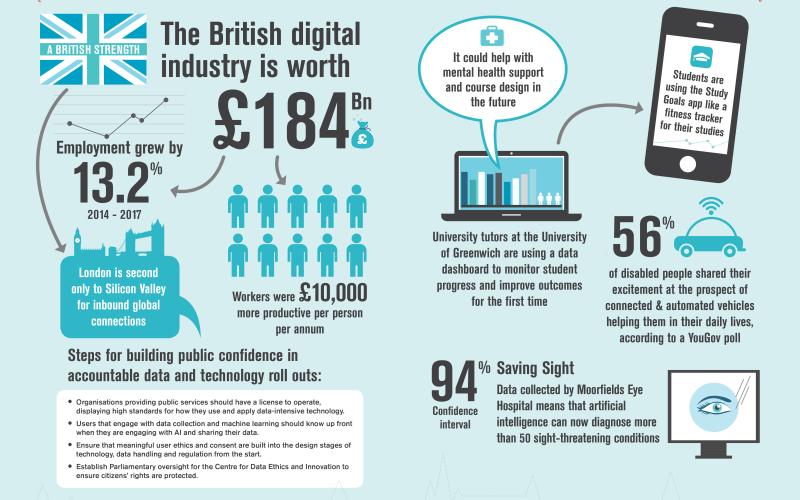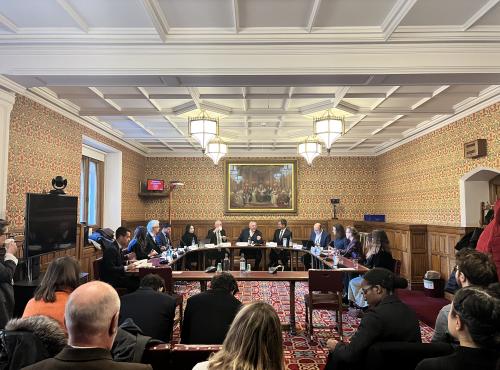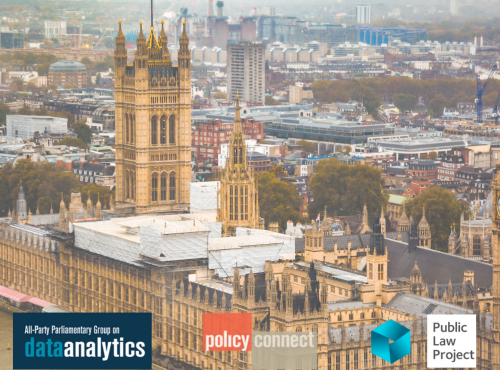Trust, Transparency and Technology: Building Data Policies for the Public Good
All-Party Parliamentary Group calls for strong deal on public ‘right to know’ for artificial intelligence
Cross-party think tank Policy Connect and the All-Party Parliamentary Group on Data Analytics calls for national ‘settlement’ on public data collection and analysis with a ‘public good’ test
The research tells a powerful story of how members of the public need confidence in how public service providers such as the NHS and police, and their private sector partners paid for by the tax-payer, take decisions using personal data collected from and about them.
Cross-party think tank Policy Connect and the All-Party Parliamentary Group on Data Analytics call for a new settlement between the citizen and all those who provide public services, both public and private bodies.
This means there needs to be a public services ‘licence to operate’: transparent, standardised ethics rules for public service providers (universities, police, health service, transport) to build for public confidence.
The report also says that MPs should have a tough Parliamentary scrutiny committee set up like the accounts committee or environmental audit committee – to make sure the public is protected. This could be part of the Science & Technology or Digital, Culture, Media & Sport committee remits, or a new committee.
Lee Rowley, Inquiry co-chair and Conservative Member of Parliament for North East Derbyshire, said: “The pace of technological change and innovation is something to be hugely welcomed but also one that should be carefully considered by society and communities. It’s clear that there isn’t enough debate on these huge questions about how we interact with, develop and harness technology either in Parliament or in society as a whole. Government may have a role to play here but, before we start jumping in, we need to work through these difficult questions. The first place to start is to ensure the widest debate and we hope this report can contribute to supporting that.”
This is not an official publication of the House of Commons or the House of Lords. It has not been approved by either Houses or its committees. All-Party Parliamentary Groups are informal groups of Members of both Houses with a common interest in particular issues. The views expressed in this report are those of the group.






